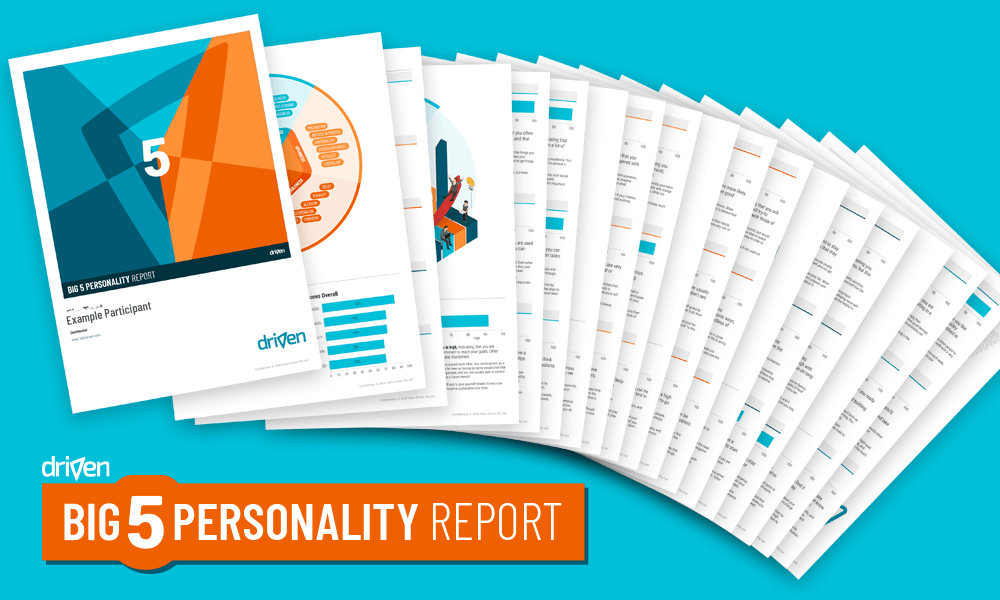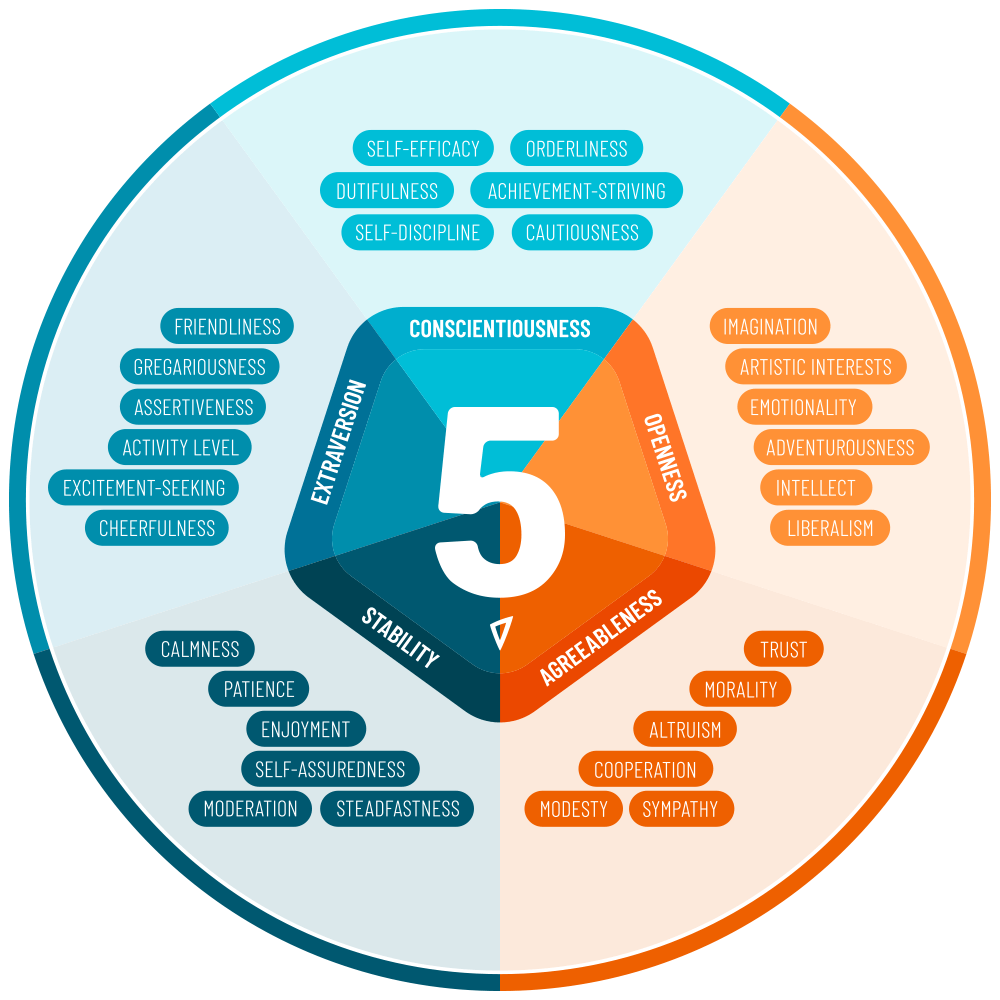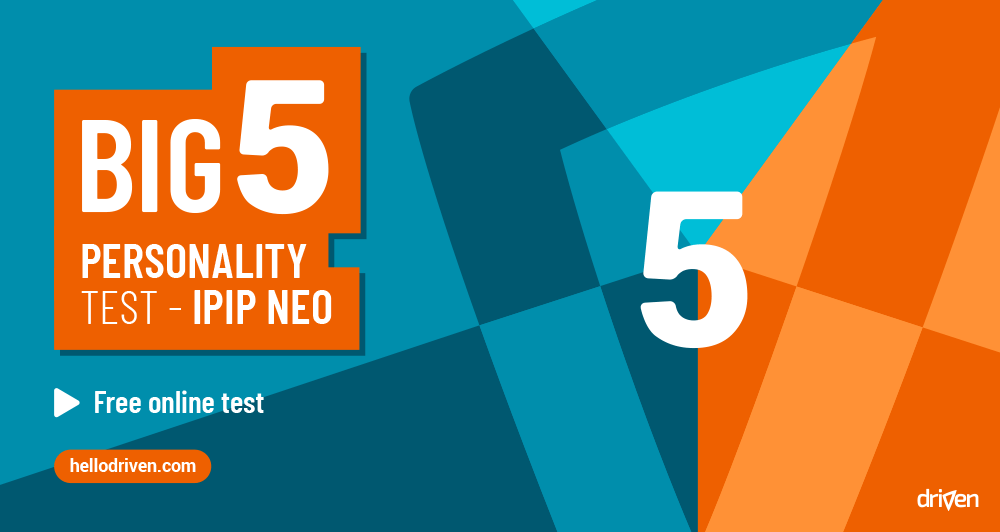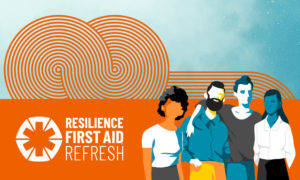We all have our own unique personalities, further differentiated through our experiences and choices through life. Our personality traits exist across gradients, and we each land somewhere across all these traits.
Since an important part of resilience is exploring your own mind and beliefs, doing a personality test is a great way to enhance your self-knowledge.
Free Big 5 Personality Test
The Big 5 model is arguably the most widely-used way to assess personality. Driven has made available a free Big 5 Personality Test that includes a comprehensive 21-page report for organisations and coaches to learn more about themselves, their teams and their clients, along with tips for self-development.
Organisations and coaches can take the Big 5 assessment through Driven, which will give a detailed report to help explore personality traits in detail 📑
Got a Driven account?
If you have an account for your team or clientele, you can click the link below to take the Big 5 test now free:

Driven's comprehensive Big 5 Personality Report
A few unique things about Driven’s Big 5 report:
- Similar to our approach with the DASS Test, while the test and scoring methodology works the same, we flip the final scores around for the Neuroticism factor. Instead of Neuroticism, we score individuals on a Stability domain, when represents the opposite of Neuroticism. This is similarly applied to all the sub-factors of Stability. This reflects our philosophy to have something to work towards, rather than something to avoid.
- Driven’s Big 5 Report can be accessed in summary format on the app, in a more detailed format, and can also be downloaded as a PDF. This gives you the flexibility to get the level of detail you like. The full version (which is available completely free) gives a lot of detail on each personality factor, helping individuals explore themselves in detail, and also access tips for each factor and sub-factor on things to look out for and potential strategies to practice for self-improvement. We feel this makes the report useful for everyone to do as part of broader resilience building.
What is the IPIP NEO?
The Five Factor Model of personality provides a method to categorise different aspects of personality, and has been widely used through various research studies, in clinical practice, and also as a coaching tool.
If there is something you want to work on and change, you absolutely can
The essential concept is that a person’s personality can be represented broadly through gradients of these five factors:
Conscientiousness – The tendency towards being careful, diligent and thorough. Sub-factors include:
Self-Efficacy
Orderliness
Dutifulness
Achievement-Striving
Self-Discipline
Cautiousness
Openness (to experience) – Tendency towards creativity, as well as new feelings, actions and ideas. Sub-factors include:
Imagination
Artistic Interests
Emotionality
Adventurousness
Intellect
Liberalism
Agreeableness – Tendency towards being kind, trustworthy and cooperative. Sub-factors include:
Trust
Morality
Altruism
Cooperation
Modesty
Sympathy
Stability (vs Neuroticism) – Tendency towards unstable emotions, both generally and in response to stressors. Sub-factors include:
Calmness vs Anxiety
Patience vs Anger
Enjoyment vs Depression
Self-Assuredness vs Self-Consciousness
Moderation vs Immoderation
Steadfastness vs Vulnerability
Extraversion – Tendency towards sociability, assertiveness and emotional expressiveness. Sub-factors include:
Friendliness
Gregariousness
Assertiveness
Activity Level
Excitement-Seeking
Cheerfulness
IPIP NEO is a free version of the original NEO scale developed to measure personality. The two have a very high correlation, meaning they effectively measure the same factors, helping everyone to get access to this useful knowledge and insight into themselves.
Take the Big 5 IPIP NEO test & get instant results.
What’s your personality like?
Why measure personality?
Our different personalities give variety to life, filling the world with all kinds of different people. Some people are outgoing and cheerful, while others prefer solitude and working diligently away at important projects. Some prefer adventure and excitement, while others are more content staying home and reading a good book.

We each exist across different gradients of the personality traits, and it’s the interaction between all these different gradients that result in an infinite combination of how personality can manifest.
This is an important concept, as personality isn’t necessarily as fixed as might commonly be thought. For example, if you score mostly as an introvert, investing time and effort into building social skills and learning to become more confident socially can eventually lead you to score as an extrovert.
Similarly, scoring low on self-discipline doesn’t mean you’ll always struggle to follow through with things. Instead it can kick off a desire to improve your levels of persistence where you learn various techniques and practice this ability to stick to things, leading you to eventually score much higher in discipline.
So, while personality tends to be relatively stable over time, if there is something you want to work on and change, you absolutely can do that.
What does the IPIP NEO stand for?
The IPIP-NEO was written based on the sub-facets proposed by the NEO-PI-R. Developed by Costa and McCrae in 1992, the NEO-PI-R stands for the NEO Personality Index, Revised. As the name suggests, this personality test went through several iterations before arriving to this point. Costa and McCrae had originally created a test called the Neuroticism – Extraversion – Openness Inventory (NEO-I). The addition of the factors of Agreeableness and Conscientiousness, as well as the 30 sub-facets were included in later iterations. Because of this, the ‘NEO’ no longer stands for anything, and is simply the name for the test itself.
Goldberg created the International Personality Item Pool (IPIP) as a first step towards using an open-source methodology in creating a measure for personality. The IPIP is a collection of assessment items (or questions) which assesses the broad variety of possible differences between individuals. As of 2019, there are over 3300 items in this pool. Using various experimental and statistical methods, Goldberg used the chose the questions which best fit the factors and sub-facets identified by the NEO-PI-R. Thus, the IPIP-NEO was born.
How does the IPIP NEO scoring work?
The standard IPIP NEO test consists of 300 questions. Smaller versions of the IPIP-NEO exist, including the 120 question IPIP NEO 120 and the 60 question IPIP NEO 60. When completing the test via the Driven app, the scoring will be done automatically for you. It will also provide a description of what the individual results mean.
Responses to each question are given on a 5-point Likert scale. The responses range from ‘very inaccurate’ to ‘very accurate’, and are given a score between 0 to 4, where ‘very inaccurate’ is scored 0, ‘neither accurate or inaccurate’ is scored 2, and ‘very accurate’ is scored 4 (for instances where the factor key indicates a negative symbol (-), this scale is reversed). As the IPIP-NEO consists of 30 sets of 10 items, the IPIP-NEO-120 has 30 sets of 4 items and the IPIP-NEO-60 has 30 sets of 2 items, the highest score possible in facet will be 40, 16, and 8 respectfully. Again, as each factor of personality consists of 6 facets, the highest score possible in any of the factors are 240, 96, and 48 respectively. These results will then be calculated and presented as a percentage.
What do the IPIP NEO scores mean?
Since personality is subjective, the results of this measure are not the objective measure of an individual’s personality. This self-report measure of personality depends on an individual’s personal reflections, making personal judgements based on their perceived norms. Let’s look at this, in parts:
Perceived norms: Am I extroverted or introverted? This question is really asking whether I am as extroverted as the average person. This means I need to understand what the ‘average person’ looks like. This norm is usually composed from past experiences. However, one’s perceived ‘norm’ might look very different depending on the context they are familiar with.
Personal reflections: An individual must make a judgement according to how they perceive themselves. There are many factors that influence why an individual might be biased when reflecting on themselves.
It is important to remember that, as comprehensive as the IPIP NEO is in measuring personality traits across a wide array of variables, the results do not show a complete image of who you are. These points highlight the degree of care that is required in the interpretation of results.
The purpose of this test is to help you get to know yourself better, serving as a tool for introspection. This can be helpful to identify areas for self-development, as well as come to learn how others may see you and therefore get a more realistic picture of yourself.
Sign your people up for the Big 5 IPIP NEO test & get instant results.





